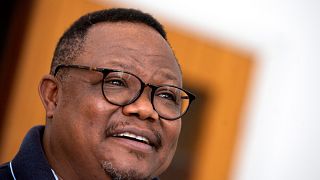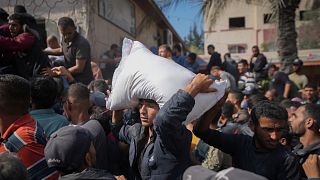Mali
Mali's military junta on Thursday launched a three-day "national consultation" with political parties, unions and NGOs, facing questions at home and pressure from abroad over its plans for returning the country to civilian rule.
Around 500 people are attending the forum, unfolding at a conference centre in Bamako, the capital.
The talks mark the second round of discussions between the young officers who overthrew President Ibrahim Boubacar Keita on August 18 and civilian representatives, many of whom had campaigned fiercely for him to resign.
- Foreign pressure -
Early jubilation among many Malians over Keita's exit has been superseded by questions and also divisions over the speed of the handover and the military's role in the transition period.
The coup -- Mali's fourth since gaining independence from France in 1960 - came after months of protests, stoked by Keita's failure to roll back a bloody jihadist insurgency and fix the country's many economic woes.
Mali's neighbours have watched with concern, fearing the country could spiral back into chaos -- a scenario that eight years ago helped fuel the jihadist revolt which now rattles Niger and Burkina Faso.
The junta initially talked of a three-year transition, corresponding to the time left in Keita's second five-year mandate, that would be overseen by a soldier.
- ECOWAS role and demand -
In contrast, the 15-nation regional bloc ECOWAS has set a hard line, closing borders, banning trade with Mali and insisting that the handover last 12 months maximum.
In the runup to the talks, the group said Mali's civilian transition president and premier must be appointed no later than September 15.
The so-called June 5 Movement, which engineered the wave of anti-Keita protests, is split.
Some voices argue in favour of giving the military a long handover in order to tackle the problems that have driven the country to the brink.
Others say that this would simply worsen instability -- four more Malian troops were killed in an attack on the eve of the talks -- and set a poor example for democracy in West Africa.
A committee of around 20 lawyers, researchers and academics has drawn up a draft "road map" resulting from a first round of talks on Saturday.
This document will be put to the forum "for amendment, improvement and enrichment", its chair, Diarra Fatoumata Dembele, told AFP.












01:14
ECOWAS Meets in Ghana to Tackle Member Withdrawals
Go to video
Uganda plans law to allow military prosecution of civilians
Go to video
U.S. charges Americans convicted of coup attempt in Congo
Go to video
Three American citizens who attempted coup in DRC back in US custody
01:04
Algeria suspends flights to Mali over airspace violations
Go to video
Sahel alliance recalls ambassadors from Algeria over Malian drone downing